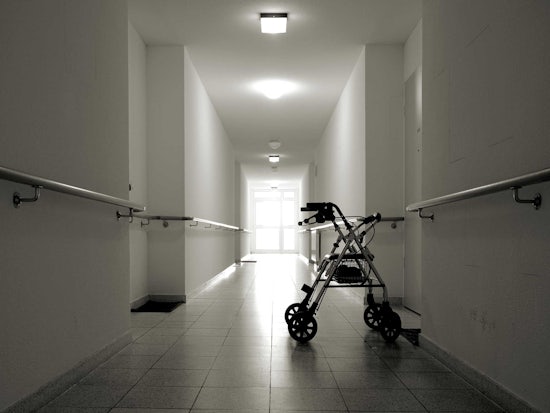Much needed upgrades made to aged care accreditation system
Aged care facilities will be surveyed for accreditation using a new online system starting this month, in an effort to prevent sub-standard facilities from falling through the cracks.

Aged care facilities will be able to compare their accreditation performance against regional and national benchmarks under the new accreditation system (Source: Shutterstock)
Surveyors from the Australian Aged Care Quality Agency will be conducting accreditation performance reviews using a new Computer Assisted Audit Tool (CAAT), due to come online this month.
The CAAT will contain the descriptors for meeting the 44 aged care industry standards and for the first time, will allow providers and agencies to see the extent to which the facility meets those standards.
Aged care facilities will also be able to compare their accreditation performance against regional and national benchmarks under the new accreditation system.
Australian Aged Care Quality Agency Chief Executive Officer Nick Ryan says the agency has been working on the development of the tool, including the development of the software and the audit methodology, for around 12 months.
“Surveyors will use the tool to support audit practices of evidence collection from interviews, observations and document reviews,” Mr Ryan says.
“The information gathered in CAAT will produce a report of major findings or an assessment contact report of the outcomes of our audit visits.
“The information will be used at a regulatory case management level to better inform risk-based approaches in relation to assessing a home’s performance against the standards.”
The Australian Aged Care Quality Agency also introduced a Consumer Experience Report this week, which will allow 10 percent of care recipients at any one facility to provide feedback at the time of the audit about the quality of the care and services.
The agency interviews between 55,000 and 60,000 aged care residents a year but has not previously had a standardized approach to recording the feedback received.
The new format will comprise of 10 questions, developed by the La Trobe University’s Australian Institute for Primary Care and Ageing, such as ‘do the staff treat you with respect?’ and ‘Do staff meet your health care needs?’.
Alternative formats have been developed to ensure residents with reduced cognitive or language capacity can also answer questions about their experiences.
Pat Sparrow, Chief Executive Officer of Aged and Community Services Australia (ACSA) says her organisation welcomes any new accreditation tool that supports the aged care sector’s aim to provide high quality of care.
“The independent review of the regulatory system is the most important step in preventing situations like Oakden from occurring again,” Ms Sparrow says.
“We need to understand what happened and why before determining what actions may be needed.
“Having a firm but fair regulatory system which protects older people while allowing service innovation to flourish is absolutely key – ACSA looks forward to providing input into the Commonwealth review and discussing implementation of any necessary changes.”
Ms Sparrow also says that ACSA is currently working with the South Australian government to ensure quality care for former Oakden residents.
In March this year, the Australian Aged Care Quality Agency accredited the now infamous Oakden nursing home in South Australia, which is now under an Independent Commissioner Against Corruption (ICAC) investigation into systemic maladministration and misconduct.
According to Mr Ryan, who visited the Oakden facility this week, the full review audit revealed that the facility failed to meet 15 of the 44 expected outcomes of the accreditation standards, finding there was a serious risk to the health, safety and wellbeing of the residents.
More recently, the Martindale aged care facility in Gawler, South Australia was sanctioned by the Federal Government just two weeks after the Australian Aged Care Quality Agency granted it accreditation until 2020.











![The new Aged Care Act exposure draft is slated for release in December of 2023, but advocates hope to see it rolled out on January 1, 2024. [Source: Shutterstock]](https://agedcareguide-assets.imgix.net/news/articles/wp/agedcareact__0811.jpg?fm=pjpg&w=520&format=auto&q=65)












Comments